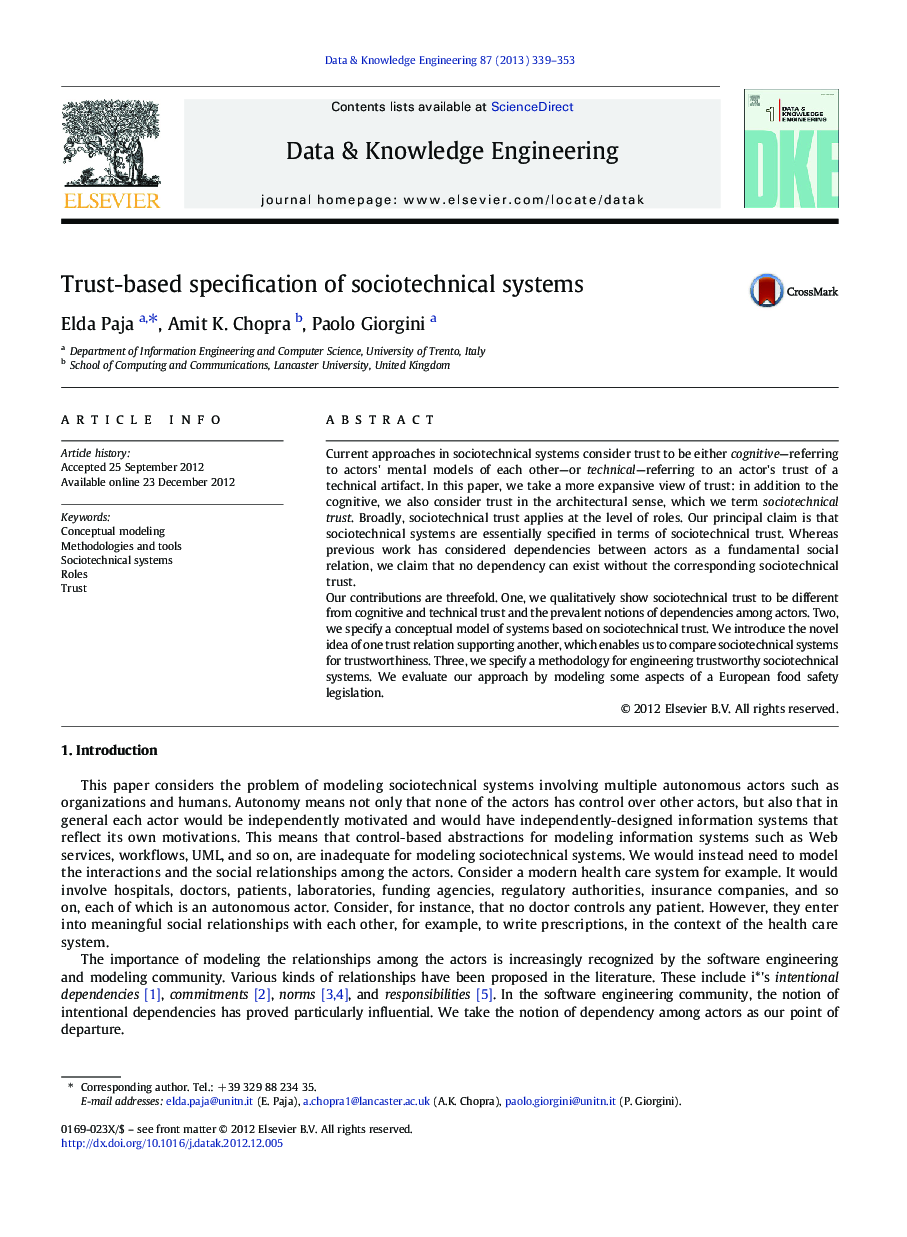| Article ID | Journal | Published Year | Pages | File Type |
|---|---|---|---|---|
| 378881 | Data & Knowledge Engineering | 2013 | 15 Pages |
Current approaches in sociotechnical systems consider trust to be either cognitive—referring to actors' mental models of each other—or technical—referring to an actor's trust of a technical artifact. In this paper, we take a more expansive view of trust: in addition to the cognitive, we also consider trust in the architectural sense, which we term sociotechnical trust. Broadly, sociotechnical trust applies at the level of roles. Our principal claim is that sociotechnical systems are essentially specified in terms of sociotechnical trust. Whereas previous work has considered dependencies between actors as a fundamental social relation, we claim that no dependency can exist without the corresponding sociotechnical trust.Our contributions are threefold. One, we qualitatively show sociotechnical trust to be different from cognitive and technical trust and the prevalent notions of dependencies among actors. Two, we specify a conceptual model of systems based on sociotechnical trust. We introduce the novel idea of one trust relation supporting another, which enables us to compare sociotechnical systems for trustworthiness. Three, we specify a methodology for engineering trustworthy sociotechnical systems. We evaluate our approach by modeling some aspects of a European food safety legislation.
